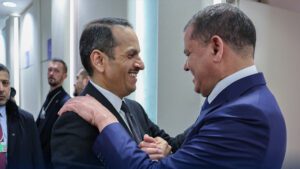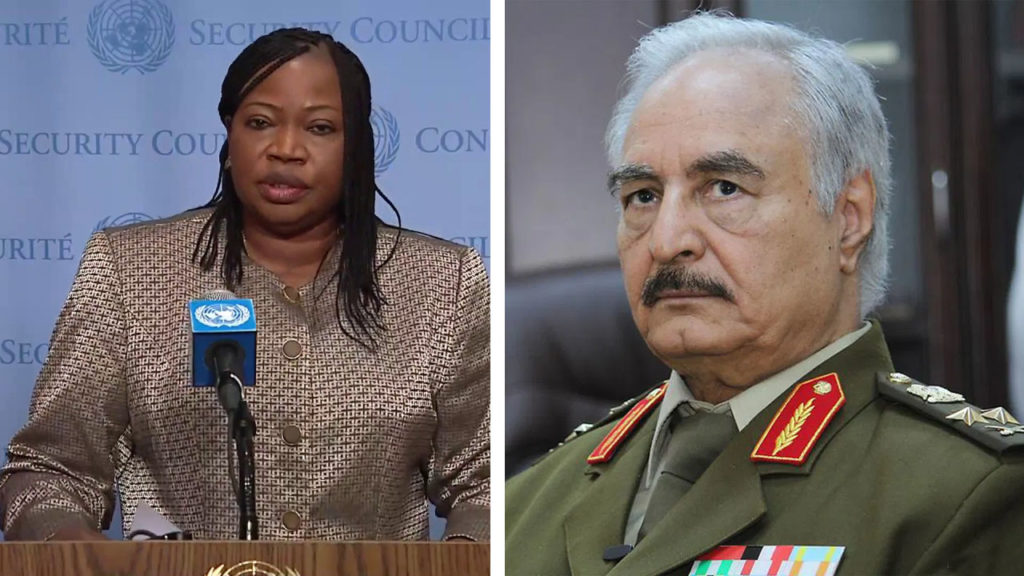The Prosecutor of the International Criminal Court (ICC) told the Security Council in a virtual briefing on Tuesday that unabated violence, particularly in and around the Libyan capital, has now been raging for more than a year, warning that war crimes may have been committed.
“Of particular concern to my Office are the high numbers of civilian casualties, largely reported to be resulting from airstrikes and shelling operations”, said Fatou Bensouda.
Bensouda reiterated that under the Rome Statute, intentionally attacking non-combatant civilians is a war crime that could be tried by the ICC.
The top prosecutor also highlighted “grave and persistent” arbitrary detentions and serious mistreatments of migrants and refugees who attempt to transit through Libya.
Noting “widespread” detentions without due process, she reminded that those detained unlawfully or denied their fundamental procedural rights are at greater risk of murder, torture and various forms of sexual violence.
“Such crimes are all too common”, she said. “Former detainees report brutal methods of torture” and other have died from their injuries or lack of medical care.
Urging “serious and urgent” prison reforms, she said that her offices “continues to closely follow-up on these allegations”.
The prosecutor said an increasing number of enforced disappearances are occurring with close to total impunity, reminding Council members that these are crimes against humanity that inflict “severe suffering” on families and can spread terror across all of society.
Moreover, when targeted against prominent members of the community, such as political activists, human rights defenders and journalists, “it sends a strong message that voices of dissent will not be tolerated”, and causes “grave consequences” for both individuals and communities.
Bensouda drew attention to the case of Siham Sergewa, a psychologist and leading rights campaigner, who has been a member of the Libyan House of Representatives for Benghazi since 2014. She been missing since last July when she was allegedly abducted from her home, by a large group of armed men.
“Her fate and whereabouts remain unknown”, asserted the prosecutor.
Meanwhile, “derogatory and dehumanizing language” targeting certain individuals or groups, has become “pervasive” in both traditional and social media.
She argued that “this is cause for concern”, because it generates hatred and fear in the community; deepens divisions within society, and “foments conditions in which mass atrocity crimes can occur”.
Under the Rome Statute, a person who “instigates the commission of crimes by others” is also responsible for those crimes, the ICC Prosecutor spelled out, giving the example of “making public statements inciting attacks on specific ethnic or social groups”.
“Leaders and prominent members of the community have a special responsibility to lead by example and to refrain from hate speech”, she added.
Amidst continuous violations, a second round of ICC litigations unanimously ruled in March that Saif Al-Islam Gaddafi’s case is admissible to the top court.
Noting that Mr. Gaddafi, son of the former dictator, was convicted in Libya in absentia, Bensouda flagged that since April 2016 he has made no effort to surrender himself and called him “a willful fugitive” who is “actively evading justice” in both Libya and before the ICC.
She also reported that arrest warrants for Al-Tuhamy Khaled in Cairo and Mahmoud Al-Werfalli, who is reported to be under the command of General Haftar, have yet to be executed.
“The course of justice cannot make further progress without the arrest and surrender of ICC suspects”, she stressed. “This is a responsibility that neither rests on my Office nor the Court, but other actors in the Rome Statute system, namely States.
In closing, she underscored the importance of international criminal justice to ensure the pillars of “stability, progress and prosperity”.
“I call on this Council, the Court’s States Parties and the international community more broadly, to stand firmly by the ICC and its crucial mandate to end impunity for the world’s gravest crimes”, concluded the ICC Prosecutor.

Libyan PM hails Qatar’s role in support of Palestinian Cause
Libyan Prime Minister of the National Unity Government, Abdul Hamid Dbeibah, has commended Qatar’s role in supporting the Palestinian Cause during his meeting with Qatari




